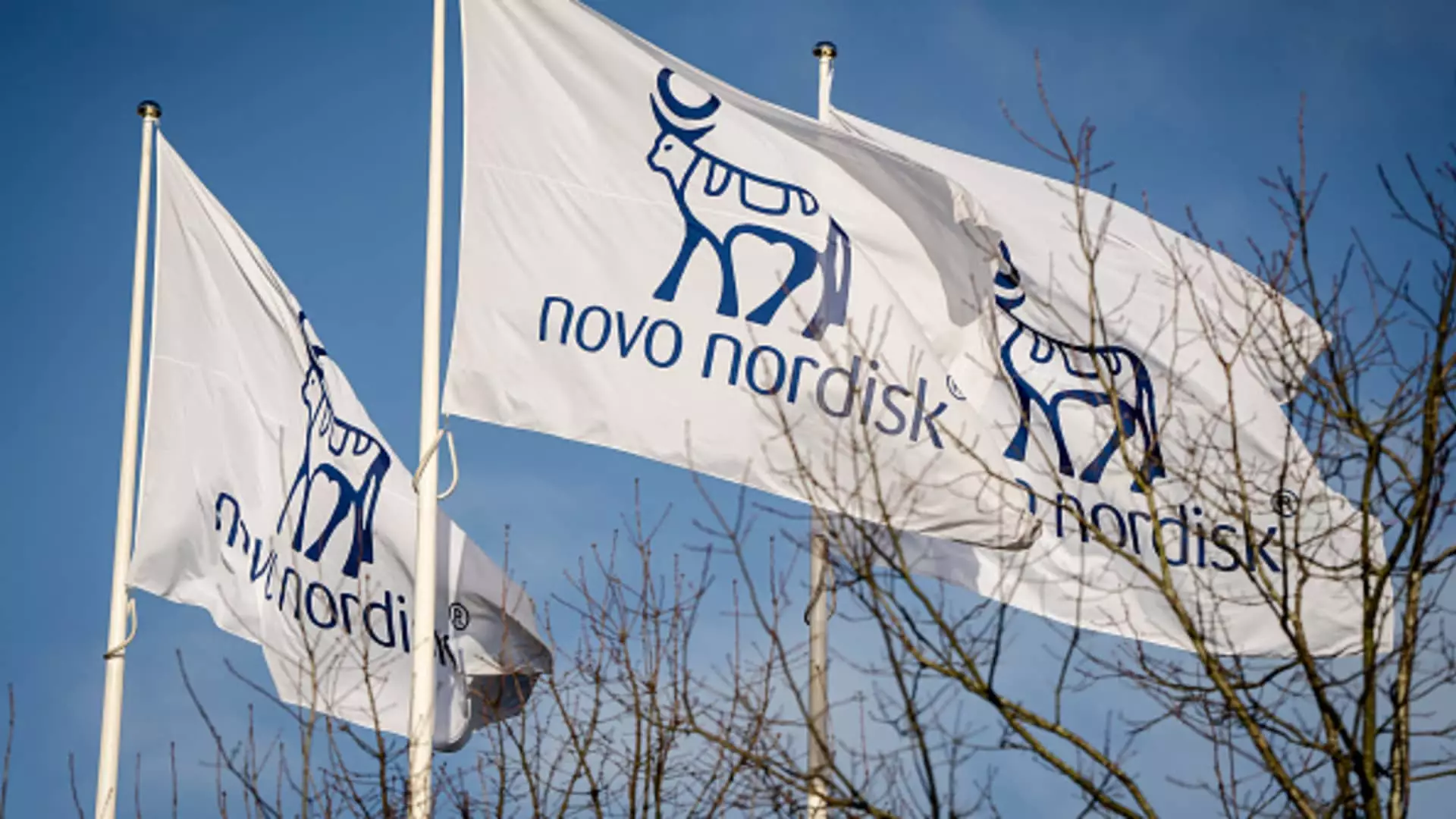In an era where healthcare innovations are critical for improving patient outcomes, arguably no development is as transformative as Novo Nordisk’s diabetes medication, Rybelsus. Recent late-stage trial results have revealed a tantalizing 14% decrease in cardiovascular-related deaths, heart attacks, and strokes among patients with diabetes who took this oral medication compared to those on a placebo. This development represents a significant leap forward, particularly for individuals already grappling with chronic illnesses—especially those who may struggle with injectable medications due to fear or discomfort with needles.
Rybelsus is not merely another addition to the diabetes medication landscape; it symbolizes a shift in prescribing practices. Approved for Type 2 diabetes, the oral formulation of the drug, taken daily, offers an avenue of treatment that could change the preferences of many patients. Patients suffering from diabetes should have choices that fit their lifestyles and personal preferences, and Rybelsus’ convenience cannot be overstated. This drug corresponds to a growing understanding in the medical community that patient compliance is enhanced when medication regimens are simpler and less intimidating.
Breaking Down the Trial Results
The numbers from Novo Nordisk’s extensive trials are compelling. Conducted over an average period of four years with more than 9,600 participants aged 50 and older, the results indicate that of those taking Rybelsus, 12% encountered serious cardiovascular events, compared to 13.8% of those on the placebo. While these percentages may seem marginal, they highlight an essential narrative: a small figure that translates into meaningful lives saved and improved quality of life for numerous individuals.
Moreover, the trial’s design and execution reveal a commitment to scrutinizing the cardiovascular implications of this medication, potentially paving the way for broader health benefits in various subpopulations. The study’s focus on diabetic patients with or without chronic kidney disease further accentuates a nuanced understanding of this vulnerable demographic, particularly as chronic kidney conditions are prevalent among diabetes patients.
The Bigger Picture of Diabetes Management
This breakthrough isn’t occurring in isolation. Other pharmaceutical giants, like Eli Lilly, are also in the race to develop oral GLP-1 medications targeting various health issues, from diabetes to weight loss, spotlighting a burgeoning pharmaceutical market that’s shifting toward patient-friendly alternatives. The trend emphasizes a broader movement in healthcare to prioritize patient experience alongside clinical efficacy. The medication spectrum now allows patients to choose between injections and oral formulations, an empowerment shift we should elevate as crucial.
It’s worth noting, however, that while Rybelsus boasts significant cardiovascular advantages, it is not devoid of potential side effects. Gastrointestinal symptoms, while common with similar treatments, remind us that every medication comes with potential hurdles. Patients need to weigh the benefits against the discomfort, opening up discussions between healthcare providers and individuals about the best course of action tailored to individual needs.
Implications for Future Approvals and Patient Choices
Novo Nordisk’s push to extend the approval of Rybelsus for serious cardiovascular complications reflects a forward-thinking approach that could redefine treatment protocols in diabetes care. As Stephen Gough, the global chief medical officer, indicated, the availability of an oral option may encourage more patients to seek help and adhere to prescribed treatments.
The data supporting Rybelsus lays a robust groundwork for future approvals, as they underscore its effectiveness not only in managing blood sugar levels but in mitigating severe cardiovascular risks. Importantly, these developments encourage continuous dialogue within the medical community regarding the need for patient-centered approaches in chronic disease management.
Indeed, in the complex tapestry of diabetes and concurrent health challenges, Rybelsus emerges not merely as a treatment; it symbolizes hope and improved life quality for millions. The ongoing commitment among healthcare providers to offer diverse treatment options for patients reflects the evolution of medicine into an era of understanding that every patient deserves tailored solutions suited to their individual circumstances and fears.
As we observe these advancements, the focus should not only be on the medications themselves but also on the conversations they spark about the importance of choice, accessibility, and patient empowerment in taking control of their health. This pharmaceutical evolution is not simply a win for one company or product; it’s a testament to the potential for constructive change in the healthcare landscape.


Leave a Reply